Medical facts evolve rapidly, but does healthcare truly adapt? Large-scale research sets the standards, yet individual patient experiences remain overlooked. If treatments don’t work for those they’re meant to help, are they really effective?
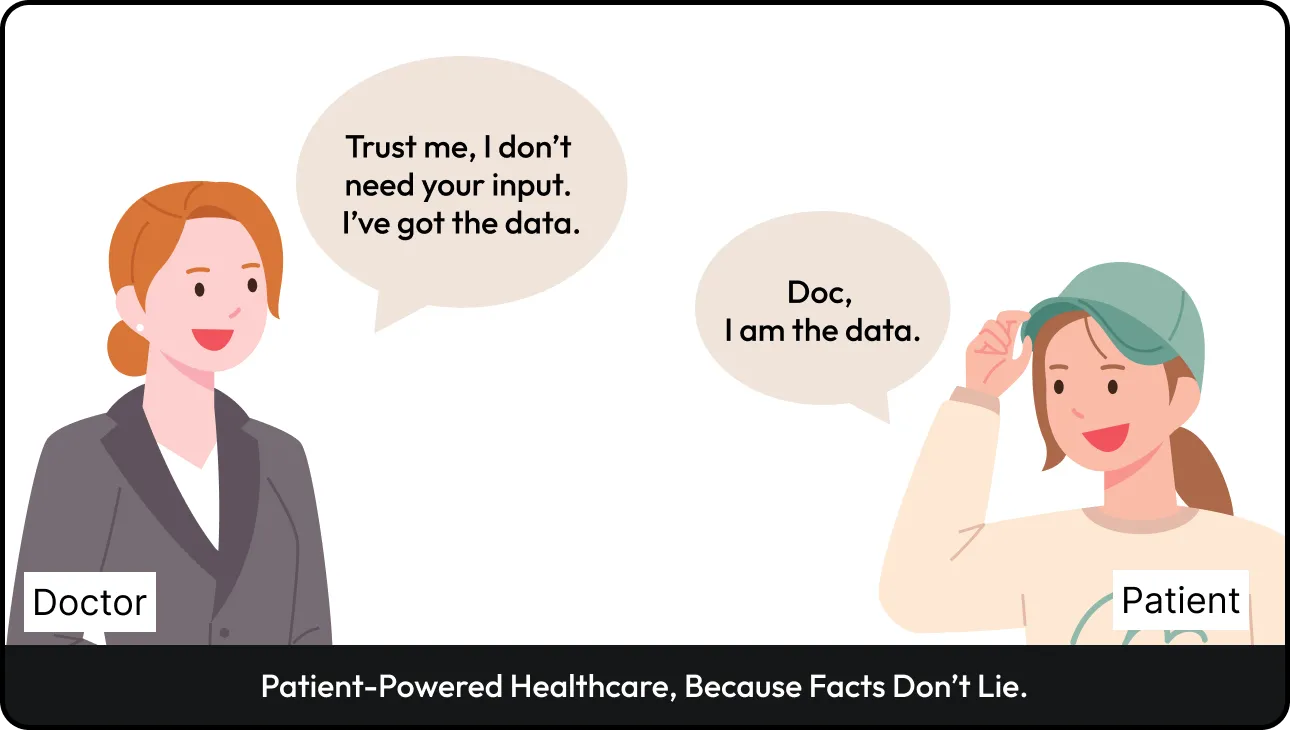
Richard Davies deBronkart Jr., widely known as E-Patient Dave, embodies resilience and transformation. In January 2007, he was diagnosed with Stage IV, Grade 4 renal cell carcinoma. His prognosis was grim, with only 24 weeks median survival, yet, against the odds, he made a remarkable recovery through cutting-edge treatment, including High-Dosage Interleukin-2 (HDIL-2) therapy.
Through his own experience, Dave recognized a critical flaw in healthcare: patients are often denied access to their own medical data, leaving them powerless in decisions about their own health. Without information, true autonomy is impossible. Today, he is a leading advocate for patient empowerment, arguing that access to data is not just a convenience, it is a fundamental right.
Empowerment in healthcare isn’t just about giving patients a voice; it’s about equipping them with the tools and knowledge to participate meaningfully in their care. Patients are no longer passive recipients of treatment, they are actively reshaping the system. By tracking their own health data, contributing insights, and engaging in evidence-based discussions, they are driving a shift toward more personalized and effective care.
Yet, a deep-rooted challenge remains: the outdated belief that only healthcare professionals should control medical decision-making. When patient-reported insights are dismissed, opportunities for better outcomes are lost, engagement declines, and the system remains rigid. True progress requires a mindset shift, one that fosters collaboration, where medical expertise and lived patient experience come together to build a more responsive, patient-centered healthcare system.
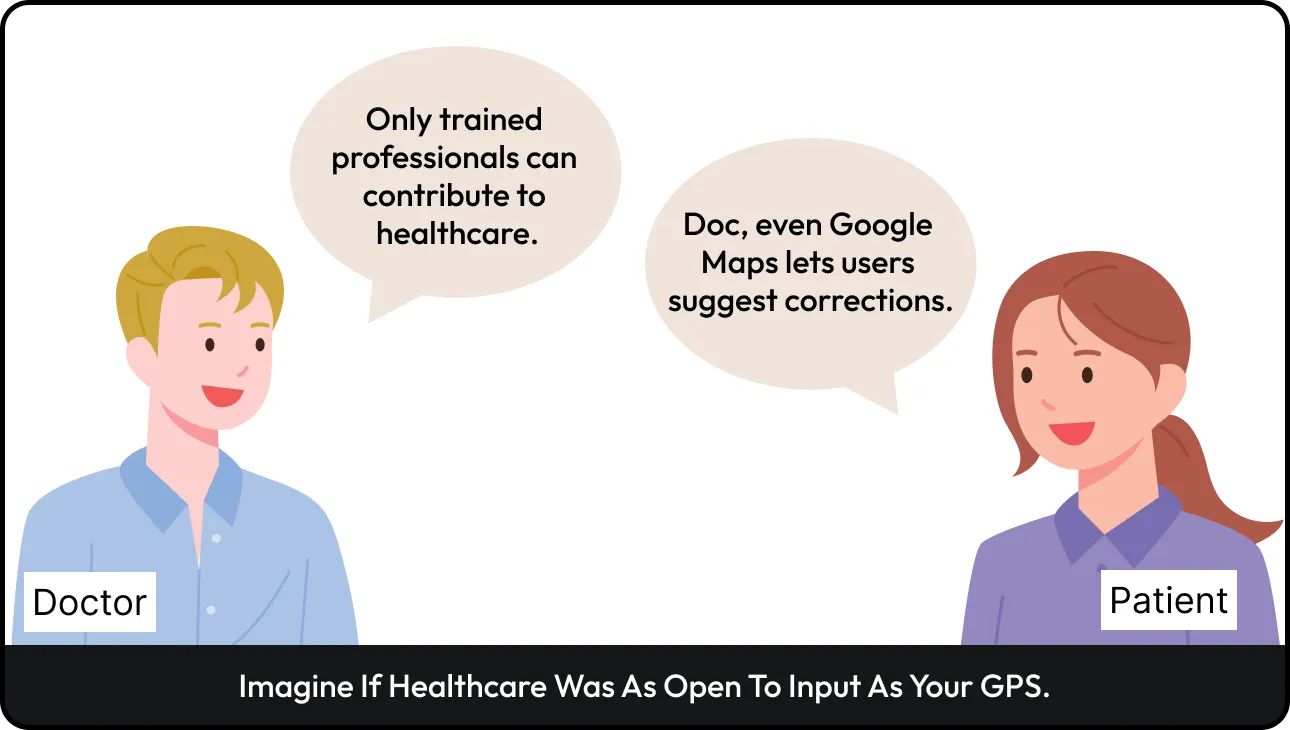
How Dave’s blogging journey led him to patient empowerment
During his early cancer battle, Dave felt well cared for, but over time, he uncovered hidden flaws in the system. When he began blogging about them, he faced resistance—yet this only fueled his determination. An accomplished speaker and writer before his diagnosis, his experience as a patient ignited a new mission: advocating for open access to healthcare information and redefining the patient’s role in medical decision-making. Through e-patients.net, he dedicated himself to learning and driving change.
One pivotal moment in his journey came during a visit to his dermatologist for skin cancer on his nose. Concerned about potential scarring, Dave sought reassurance. At the time, he didn’t fully grasp what a patient-centered approach should look like, so he accepted the doctor’s dismissive response without question.”Today I know somebody talks to me that way, I get out of there”, he adds. This experience highlighted a crucial flaw in healthcare, some practitioners treat patients as cases to be solved rather than people to be cared for.
Another defining moment came when Dave actively participated in his own treatment decisions, providing insights that helped save his life. He also blogged about the Google Health system in his hospital, only to learn that the institution hadn’t even tested it yet. Frustrated, he asked himself, “What are they doing about it?” and wrote about it. That blog post caught the media’s attention, leading to interviews, newspaper coverage, and eventually, his role as a healthcare activist, speaking at global conferences and advocating for patient empowerment.
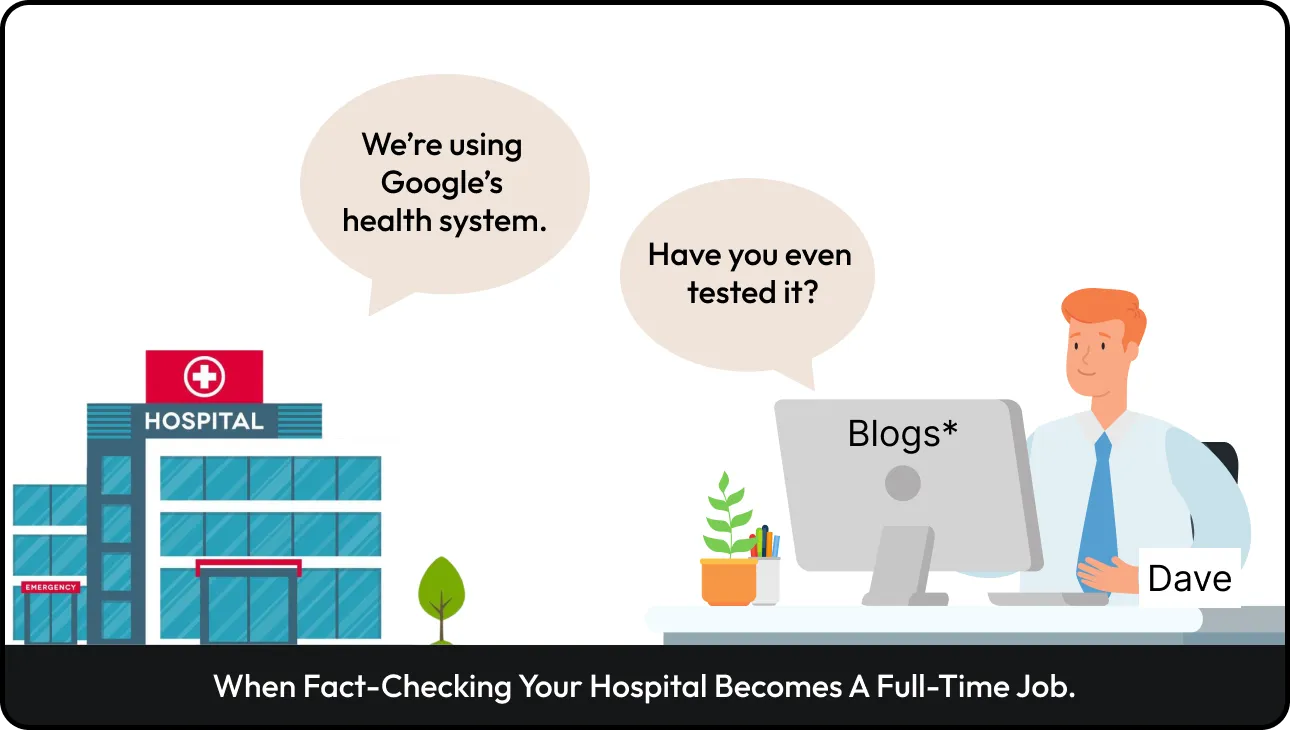
Medical facts vs. individual Outcomes: The complexity of evidence-based medicine
Dave references the 2013 book The Half-Life of Facts by Samuel Arbesman, which highlights a striking reality: facts are not permanent. Over time, what is considered true can become obsolete, and no field experiences this shift faster than medicine. While physics boasts some of the longest-standing facts, medicine, in contrast, has the shortest lifespan for its truths.
By the time a medical professional completes their training, only about a quarter of what they learned remains relevant. This illustrates the ever-evolving nature of healthcare, where treatments, protocols, and medical understanding constantly change.
Given this rapid pace of transformation, expecting doctors to know everything is not practical. Instead, Dave emphasizes that the ideal doctor does not memorize every study, but one who can critically assess evidence and apply it to individual cases. He believes that the best practitioners are those who can tailor treatment plans to the unique needs of each patient rather than rigidly following generalized guidelines.
At the same time, Dave acknowledges the difference between knowledge and expertise. He states, “A patient might read every journal in the world but can’t think like a doctor.” This underscores a crucial balance, patients bring valuable insights about their own experiences, while doctors contribute clinical reasoning and expertise. True progress in healthcare happens when both perspectives work together to refine and improve patient care.
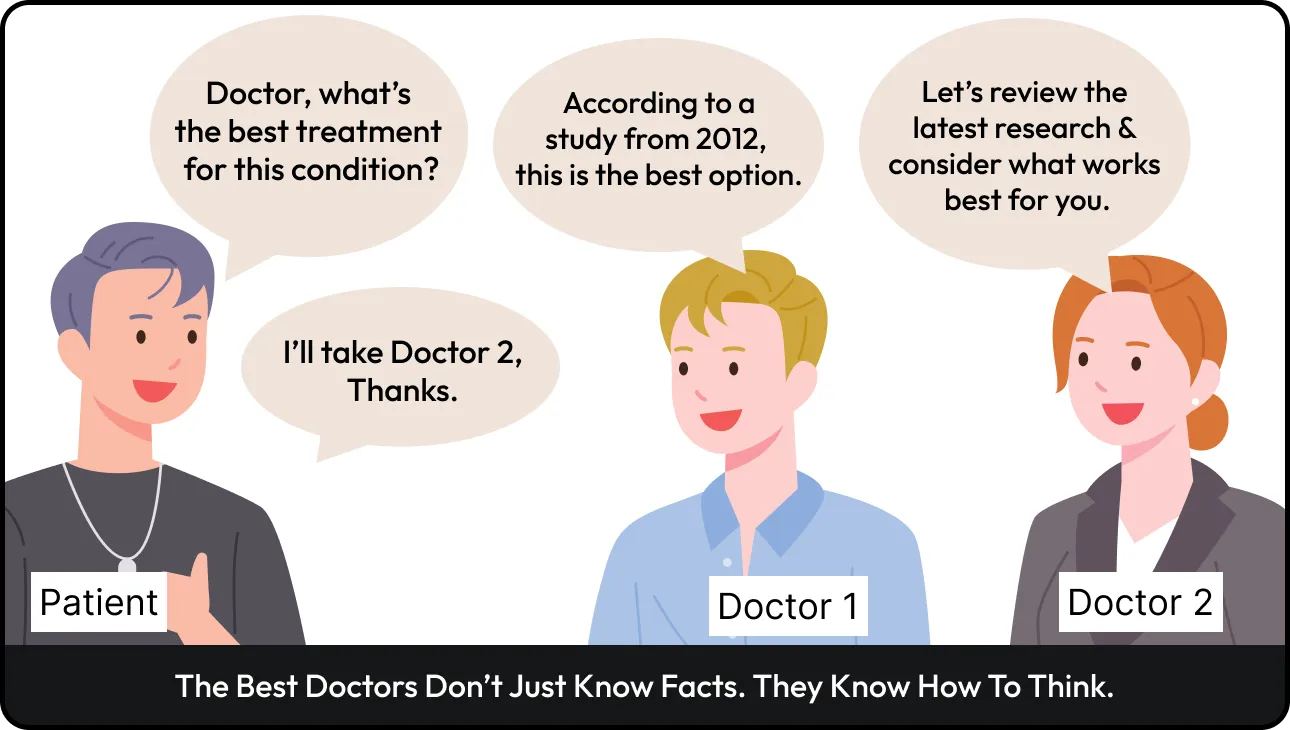
Faith, placebo, and medicine: Should we consider the unproven?
The role of faith and the placebo effect in medicine has long been debated. While science demands concrete evidence, reality often presents outcomes that defy strict explanations.
Dave recalls a clinical trial where a placebo group showed remarkable improvement, so much so that the trial had to be stopped. The patients, witnessing these unexpected benefits, urged researchers to investigate how the placebo had worked. However, the response from the system was clear: “That’s not how we do things.”
This, Dave argues, exposes a fundamental flaw in modern medical research. While the pursuit of scientific knowledge is crucial, rigid frameworks can sometimes dismiss real-world patient outcomes simply because they don’t fit into established methodologies. He believes that even at the frontier of medical knowledge, uncertainty exists, and ignoring phenomena that don’t conform to traditional study models limits progress.
Ultimately, Dave poses an essential question: If the system prioritizes scientific validation over actual patient well-being, are we truly advancing medicine? He argues that the goal of healthcare should be to help those who suffer, and that means being open to exploring every possible factor, even those that remain unproven by conventional standards.

Conclusion: The future of healthcare, learning, adapting, and innovating together
Dave reminds us that “in times of change, the learner inherits the world, while the learned are left to deal with yesterday, which no longer exists.” His journey, from patient to advocate, highlights a deeper issue in healthcare: its rigidity. Medicine evolves, yet systems remain stagnant, limiting collaboration and patient involvement. Research findings often fail to translate into real-world care, and data remains trapped in proprietary silos.
For true progress, healthcare must embrace transparency, accessibility, and open standards. This is where openEHR comes in. By ensuring real-time access, interoperability, and long-term usability of health data, openEHR shifts the system from control to collaboration. It breaks down barriers, allowing both patients and providers to work together, ensuring care is guided by both clinical expertise and lived experiences.
The future of healthcare isn’t about patients simply receiving care, it’s about them actively shaping it. And with the right technology, like openEHR, we can build a system where every voice, every piece of data, and every insight contributes to better outcomes for all.
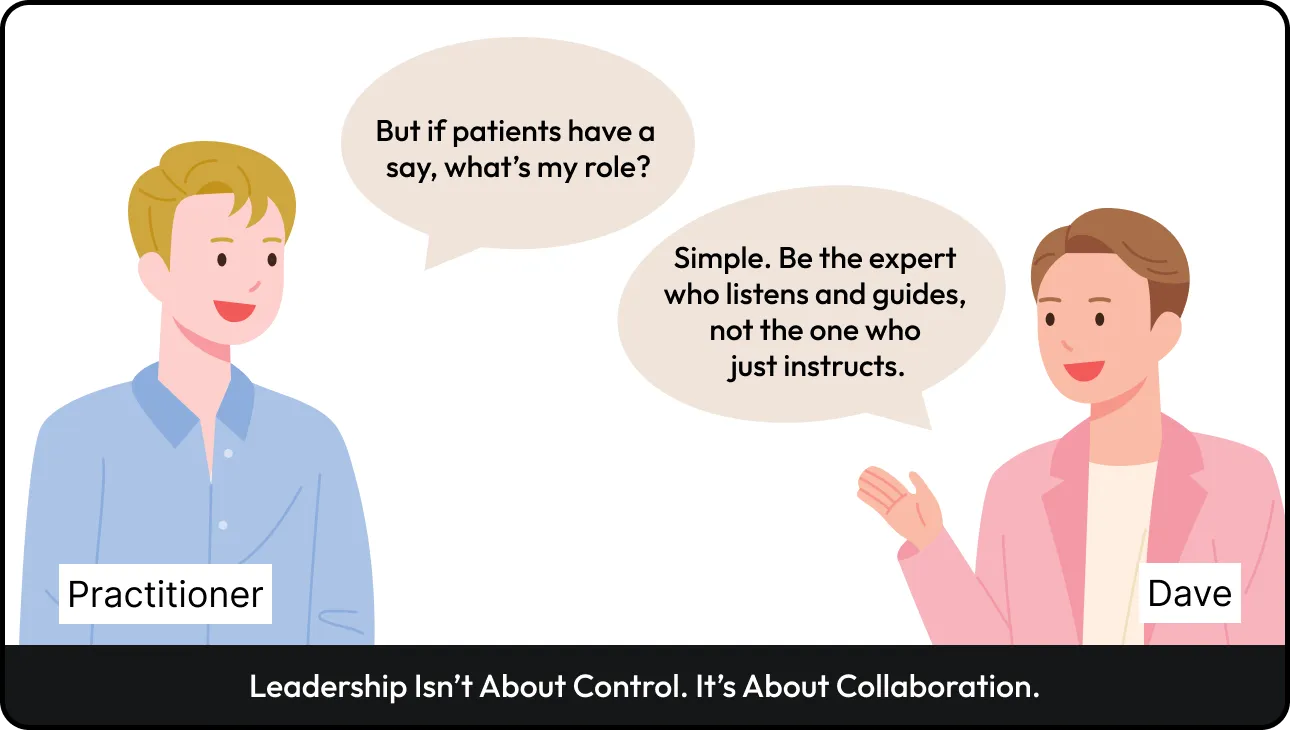
Get hands-on experience building openEHR applications that could revolutionize healthcare by joining our openEHR bootcamp.
